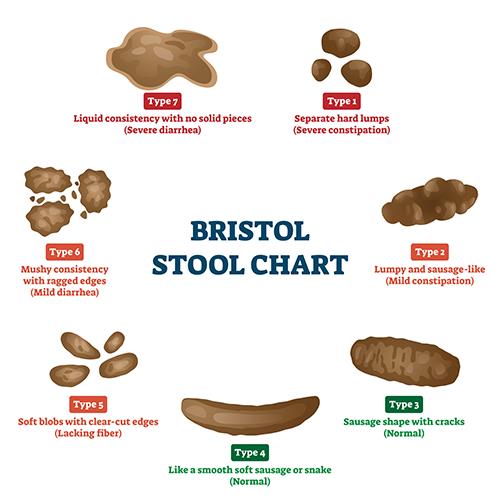courtesy of bodi.com
In the quest for optimal health, Americans are turning to an unlikely source for dietary feedback: their own bowel movements. Experts now say that the characteristics of one's stool—its color, consistency, and frequency—can serve as a revealing indicator of dietary success or needs for adjustment. This insight offers a personal health metric for families striving for wellness across the nation.
Decoding Poop Color: A Dietary Guide
From the foods we eat to the beverages we drink, our dietary choices leave a colorful mark on our health, quite literally. Dr. Todd Sinett, a leading health expert and author from New York City, explains that natural food pigments and artificial colorings can transform the hue of our poop, serving as a clue to our nutritional habits. Brown signifies a healthy digestive process, while unexpected colors like green, red, or black could point to specific foods or signal the need for medical consultation.
Frequency and Consistency: Markers of Digestive Health
The rhythm and texture of bowel movements offer critical insights into our digestive well-being, according to nutrition specialists. While individual digestive patterns vary, a balance in poop frequency and consistency indicates a diet that meets the body's fiber and hydration needs. Deviations, such as constipation or diarrhea, often suggest dietary imbalances or intolerances that require attention.
Experts recommend a diet rich in soluble fiber from fruits like berries, pears, and kiwis to combat constipation, and emphasize the importance of hydration for maintaining digestive health. On the other end of the spectrum, addressing diarrhea may involve moderating intake of irritants like caffeine and artificial sweeteners.
Empowering Americans Through Digestive Tracking
Health professionals are encouraging individuals to keep a food and poop diary as a proactive step towards identifying dietary patterns that support or hinder digestive health. This hands-on approach empowers Americans to make informed adjustments to their diets, with a focus on achieving a balanced intake of nutrients essential for overall well-being.
Before undertaking major dietary changes, consulting with a healthcare provider or a dietitian is advised to ensure nutritional needs continue to be met. This collaborative effort between individuals and healthcare professionals is pivotal in developing a tailored dietary strategy that promotes optimal digestive health and, by extension, overall wellness.
Conclusion: A Forward-Looking Approach to Health and Diet
As Americans navigate the complexities of dietary choices and their impact on health, understanding the language of our poop emerges as a valuable tool in the pursuit of wellness. By paying attention to the signals our bodies send through our bowel movements, we can achieve a deeper harmony with our dietary needs, reinforcing the importance of listening to our bodies. This insight not only enhances individual health but also contributes to the well-being of American families, echoing the timeless value of proactive health management.

courtesy of bodi.com
In the journey toward optimal health, the humble act of monitoring one's poop becomes a testament to the power of personal responsibility and the enduring American commitment to wellness.
*** Kindly back our sponsor *** |

Image Credit: Patricia Marple / AuthorsUSA.com |
 HealthWellnessFitnessBeautyVideosPrivacy PolicyTerms And Conditions
HealthWellnessFitnessBeautyVideosPrivacy PolicyTerms And Conditions
